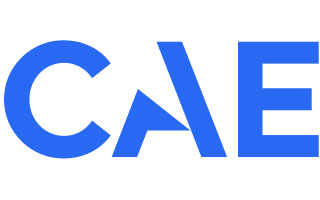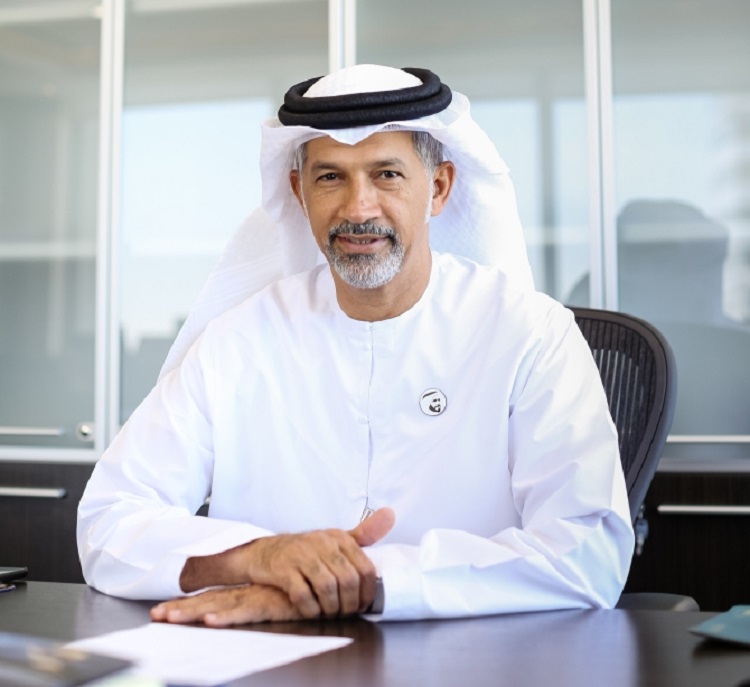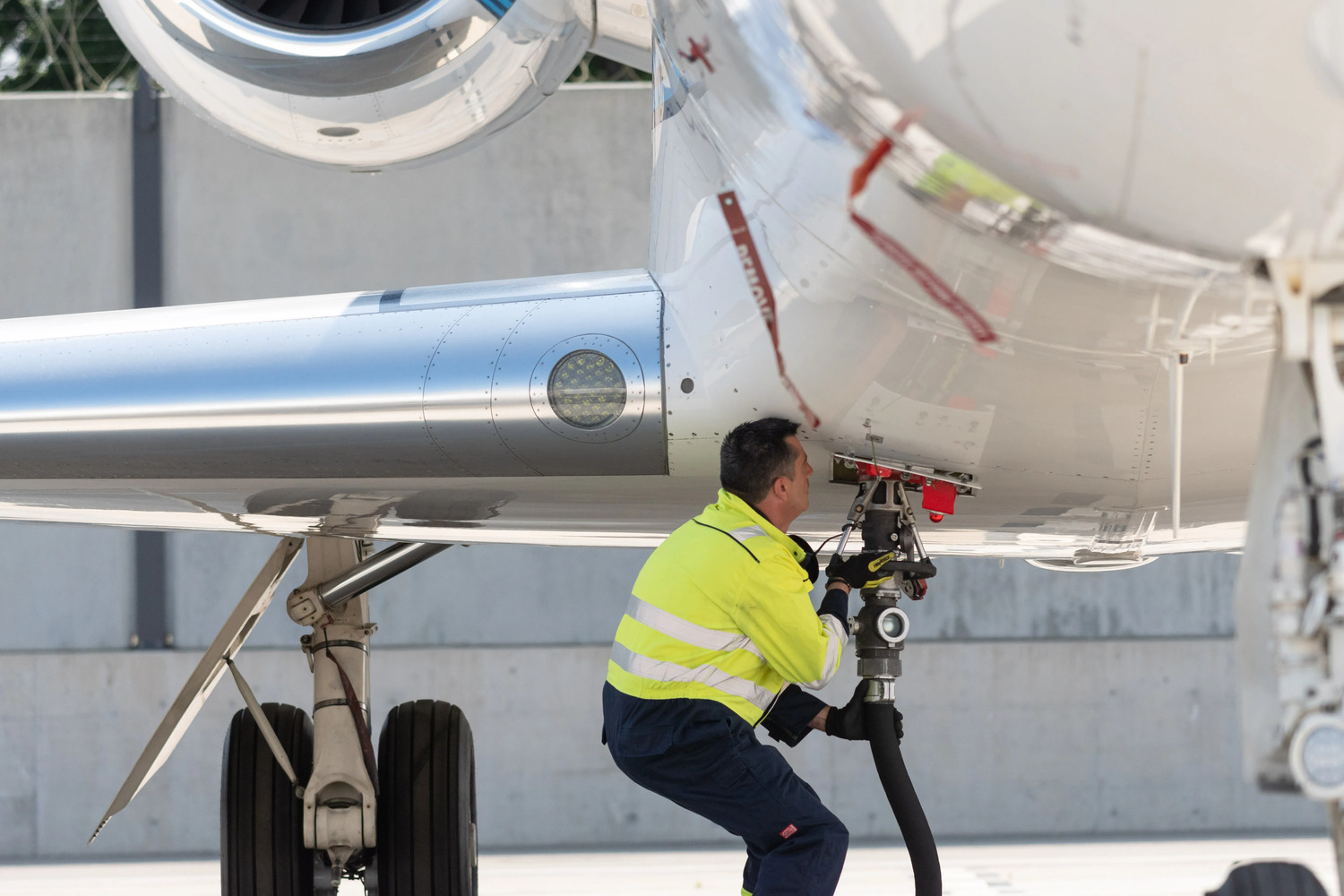The International Business Aviation Council (IBAC) and its 15 member associations from around the world agreed to the ambitious goal of net-zero carbon emissions by 2050. Can you walk us through some of the initiatives across business aviation that will help achieve the industry decarbonization goal in your region?
In response to IBAC’s goal, industry players across the region are actively researching, developing and implementing new strategies and initiatives to help reduce carbon emissions across our sector – and it’s important that we leave no stone unturned when exploring sustainable solutions.
One of the most significant of these is the development and deployment of Sustainable Aviation Fuel (SAF), with governments and businesses actively exploring new avenues in this field. The UAE has a General Policy for Sustainable Aviation Fuel where it intends to develop its local capacity for SAF and enable the production of 700 million litres of SAF annually, meanwhile Jetex and Shell Aviation partnered to bring SAF to the flagship private terminal at Al Maktoum International (DWC) in Dubai.
Additionally, we are seeing the modernisation of fleets with newer, more efficient aircraft models that feature advanced technologies, such as aerodynamically optimised wings and lighter materials, to significantly reduce fuel consumption. Meanwhile regional business aviation entities, such as SAUDIA, are investing in carbon offset programmes, representing the commitment to a sustainable aviation future.
The private aviation industry is sometimes looked at as being extravagant. How do you think the industry can address these challenges for supporting economic growth worldwide?
This perception of private aviation overlooks its essential role in driving economic efficiency and connectivity. While it was previously associated with high-net-worth individuals (HNWI), we now see more than 80% utilisation of business aviation for business purposes, taking advantage of the rapid, flexible and direct travel options.
Many businesses are also now utilising private travel in a way that benefits their business, with it able to support revenue growth, innovation and employee retention. Private aircraft can reach more airports than commercial airlines, helping to fly closer to final destinations and save time on ground transport. They can also reach numerous destinations in one day, without relying on multiple flight schedules, and executives can utilise them for meetings and private deals with better connectivity.
Businesses across the Middle East are also taking greater advantage of these benefits. As more businesses continue to migrate to the region, and we welcome more headquarters and senior executives – and therefore more business jets – our industry is booming, particularly in the UAE, Saudi Arabia, Morocco and Egypt.
While the Middle East is known for its abundant reserves of fossil fuels, the Middle East and North Africa (MENA) contain a significant opportunity for sustainable aviation fuel (SAF). How do you believe these regions can contribute to the development and availability of SAF which is a critical element for achieving the industry decarbonization targets?
The strategic location and economic positioning of MENA means that we have the capabilities to become a global powerhouse in SAF production, and many governments and industry players are investing in new technologies and initiatives to accelerate this. At the end of last year, the UAE announced its General Policy for Sustainable Aviation Fuel, a first of its kind in the Middle East, aiming to drive technology and innovation in SAF development and set a voluntary target of providing 1% of fuel supplied to national airlines at UAE airports using locally produced SAF by 2031. Meanwhile, Satorp, a joint venture between Saudi Aramco and France’s TotalEnergies, announced the successful converting of used cooking oil into certified sustainable aviation fuel, supporting TotalEnergies goal to produce 1.5 million tonnes of SAF a year by 2030.
Another example is the pioneering “Pay Here, Use There” SAF solution, a partnership between Victor, a leading global on-demand jet charter platform who recently relocated its headquarters to Abu Dhabi, and Neste, the world’s leading producer of SAF. This initiative enables its clients to purchase SAF for all bookings worldwide and reduce their CO2 emissions from flying private by up to 80%.
As an industry – and a region – we are constantly looking at new sustainable. SAF will be instrumental in reducing the carbon footprint not just of business aviation, but the aviation industry as a whole, and we must work together to help accelerate this.
Technology is shaping sustainability and enabling advanced levels of productivity and efficiency in our industry. How important are business aviation events like the MEBAA Show in showcasing and promoting the adoption and use of the latest technologies?
Business aviation events such as the MEBAA Show play a pivotal role in advancing our industry, serving as a global platform for unveiling cutting-edge technologies, demonstrating innovation and gathering leading minds to uncover new pathways. They are an opportunity to gain market insights, uncover future trends and collectively address some of the most pressing challenges facing our industry, while also encouraging the adoption of new solutions that will drive the industry towards a more prosperous and sustainable future.
For the 2024 edition, we are delighted to be bringing local, regional and international stakeholders from across the business and private aviation landscape back to Dubai, ready to chart the way forward and collectively shape the future of our industry. As the only event of its kind in the Middle East that combines a trade show and aircraft display on the same site, we’re able to offer attendees a unique experience where they can meet and hear from industry leaders, while also witnessing a spectacular line-up of private jets and luxury showcases from world-class exhibitors.
The successful BizAv Talks will also return for a second year, featuring an extended programme to enable even more conversations on the pressing topics defining our industry. Across the three days, an exciting agenda led by more than 45 speakers will reassess the dynamics of the sector and discuss the current themes, emerging trends, challenges and innovations within it.

What are your key predictions for the business aviation market in the region in terms of growth, challenges and opportunities?
Business aviation in the Middle East continues to grow rapidly, with regional business aviation traffic surging at an impressive 10% year-on-year, and deliveries projected to soar to $9.1 billion between 2024 and 2032. The prominence of high-net-worth individuals (HNWI) – particularly in large economies such as the UAE and Saudi Arabia – expansion of non-oil industries and rise of new economic centres is creating a larger demand for private travel, and this is offering significant growth potential.
While challenges will include navigating regulatory environments and ensuring sustainable practices are adopted industry-wide, the opportunities are abundant. Aviation technology is growing and evolving at pace, particularly with artificial intelligence and machine learning able to enhance operational efficiency and customer experience and safety. Meanwhile the expansion of airports and infrastructure across the region, such as the recently announced phase two of DWC, all align with the projected increases in private flight activities and underscore the vibrant future of business aviation.
eeing the modernisation of fleets with newer, more efficient aircraft models that feature advanced technologies, such as aerodynamically optimised wings and lighter materials, to significantly reduce fuel consumption. Meanwhile regional business aviation entities, such as SAUDIA, are investing in carbon offset programmes, representing the commitment to a sustainable aviation future.













